The 15 best Walking Dead episodes, ranked!
What episode takes the number one spot?
7. "The Day Will Come When You Won't Be" (season 7, episode 1)
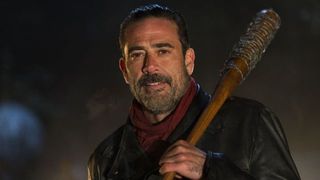
The Walking Dead's producers did all they could to keep the victim of Negan's deadly swinging a secret following that jaw-dropping season 6 ending. When the season 7 premiere finally arrived, even then, the opening minutes held back that information. That delayed answer works in the episode's favour. Glenn and Abraham may have been hit for a horrific home run, but it’s everything else before and after that should be remembered best.
Andrew Lincoln has never been better as Rick, for one thing. His simmering, apoplectic rage, despite remaining utterly helpless throughout the massacre, is a juggling act that only the very best actors can pull off convincingly. And, despite Negan eventually slowing the Walking Dead as a whole down, its during "The Day Will Come When You Won't Be" where the villain feels like a truly disgusting human being who is far scarier than any zombie.
6. "Too Far Gone" (season 4, episode 8)
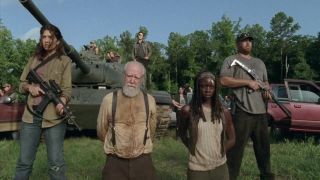
The first-ever Walking Dead mid-season finale made good use of the show's re-jigged structure, offering both a serious sense of closure (killing off The Governor may be the writers' best-ever decision) while also offering us hope for the future.
Of course, "Too Far Gone" didn’t come without its casualties. The Walking Dead is never a show that can revel in its victories and so it was here, with Hershel being beheaded and the prison being overrun. Both were huge moments for a show that rapidly lost its innocence and replaced it with a harder, more morally ambiguous edge.
5. "Killer Within" (season 3, episode 4)
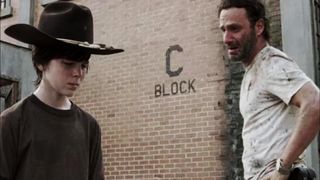
While The Walking Dead has never slavishly followed Robert Kirkman’s comic series, the TV adaptation has never carved out its own route as confidently as with season 3’s "Killer Within". This episode marks the last chronological appearance of T-Dog and Rick’s wife, Lori. It’s the latter that hits hardest; an uncomfortable slog of a scene involving Maggie delivering Lori’s baby despite knowing that giving birth will kill her. The final parting shot is not left to Lori; it’s Carl who steps up to the plate and delivers the killing blow.
Neither of those things happen in the comic – newborn Judith is dead long before they leave the prison – but it speaks volumes that the show felt comfortable enough to completely change an expected outcome in the most heart-wrenching way, all while tearing up the blueprint to the show’s future in the process.
4. "Pretty Much Dead Already" (season 2, episode 7)
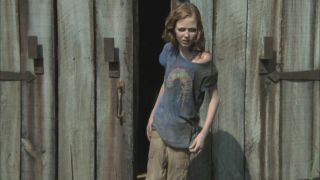
For the majority of its early run, The Walking Dead struggled to forge a clear identity for itself. Part adventure, part horror – the show never truly hit the mark on either. Come "Pretty Much Dead Already", an episode that sees the missing Sophia eventually found, then gone again almost as quickly as she stumbled out of Hershel’s barn, the show convincingly became the shocking drama we would all come to love.
Sign up for the Total Film Newsletter
Bringing all the latest movie news, features, and reviews to your inbox
It’s hard to downplay just how much of an impact the episode had on the show’s tone. The act of killing a child – walker or otherwise – made it stand out from anything else on TV, and helped pave the way for more stomach-churning acts in the years that followed. This isn’t a power fantasy; it is a group of people trying their hardest to survive and often coming up short. That's the hook the creative team chose to come back to again and again, and it’s one borne from this episode. Essential viewing and reviewing for any fan of the show.
3. "Days Gone Bye" (season 1, episode 1)
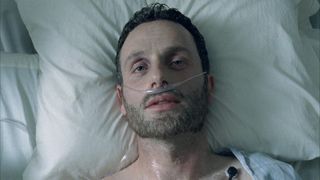
First impressions count. The Walking Dead's premiere, happily, doesn’t waste a single second.
The writers of "Days Gone Bye" should be commended for just how much they snugly fit into a single opening episode: the premise of the outbreak, the mystery of Rick in an abandoned hospital, and the very first face-to-face interaction with a walker – all communicated effectively and efficiently, a masterwork in show and not tell. It’s a tricky balancing act, but one the opener pulls off thanks to smartly anchoring the viewer to Andrew Lincoln’s wide-eyed Rick throughout.
Oh, and there’s a tank during the episode’s final minutes. A freaking tank! If nothing else, the show made you want to watch next week.
2. "Here's Not Here" (season 6, episode 4)
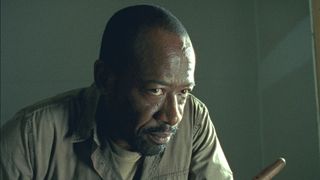
Morgan’s return at the end of season 5 was a missed opportunity, with actor Lennie James getting zero time to breathe. After all, the character went from being a father, to a maniac, to a pacifist in just a handful of episodes and we never found out why. "Here’s Not Here" powerfully fills in the gaps, presenting a tour-de-force in quiet, introspective storytelling.
The dialogue, for example, hasn’t been bettered on the show before or since. Each interaction with Morgan and his captor-turned-mentor, Eastman, feels important instead of just filling in empty air. The methodical rhythm of the episode, complete with long periods of reflective silence, helps Morgan come to terms with his wife and child’s death.
Flashbacks can often be lazy, trite methods of storytelling. Not so here. The sole season 6 entry on this list transforms Morgan from a steady presence permeating the early seasons with his cameos to a fully-fleshed out regular – one you were dying to see more of.
1. "The Grove" (season 4, episode 14)
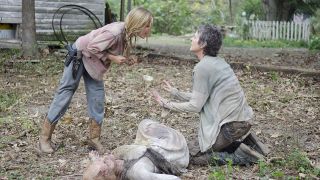
"The Grove" isn’t just the best Walking Dead episode – it’s one of the best episodes of television. Period.
At its heart, this season 4 outing is all about confronting ugly truths. It doesn't start that way. The idyllic house that Carol, Tyreese, Lizzie, and Mika have found sanctuary within is one of the sweeter moments in the show. After all, things are normal. There’s a kettle, a nice garden. People are happy. Everyone is loved.
There’s an inescapable feeling, however – like a Twilight Zone episode that’s about to unveil its twist – that punctures each strained smile from Carol and warm embrace from Tyreese: this domestic detour can’t last in a world as messed up as The Walking Dead’s. It’s a genuinely painful experience to re-visit because, arguably, it’s the last time Carol found real peace, even if for just a fleeting moment.
Things inevitably break down as the walls of the house seem to close in – the direction becoming more claustrophobic with each passing act – and Lizzie gives the child from the horror movie Hereditary a run for her money in the creepy kid stakes.
By the episode’s end, Carol tells Tyreese she was the one who murdered Karen, while she also has to kill a frenzied Lizzie in the series’ ultimate lump-in-the-throat scene. Both hurt in very different, equally traumatising, ways.
But why does it deserve its place here ahead of all others? Because of the ending. Where some shows may look behind to survey the carnage, "The Grove" unflinchingly leaves the home and barely reflects upon what just happened, almost as if it was an everyday occurrence. Carol and Tyreese depart with barely a word said between them; "The Grove" had already said everything it needed to say.
Want more of the best TV on the airwaves? Check out our best It's Always Sunny in Philadelphia episodes and best Fresh Prince of Bel-Air episodes.
I'm the Senior Entertainment Writer here at 12DOVE, focusing on news, features, and interviews with some of the biggest names in film and TV. On-site, you'll find me marveling at Marvel and providing analysis and room temperature takes on the newest films, Star Wars and, of course, anime. Outside of GR, I love getting lost in a good 100-hour JRPG, Warzone, and kicking back on the (virtual) field with Football Manager. My work has also been featured in OPM, FourFourTwo, and Game Revolution.

Buffy the Vampire Slayer reboot will reportedly have a main character who's "more Willow," with Sarah Michelle Gellar as a guest star
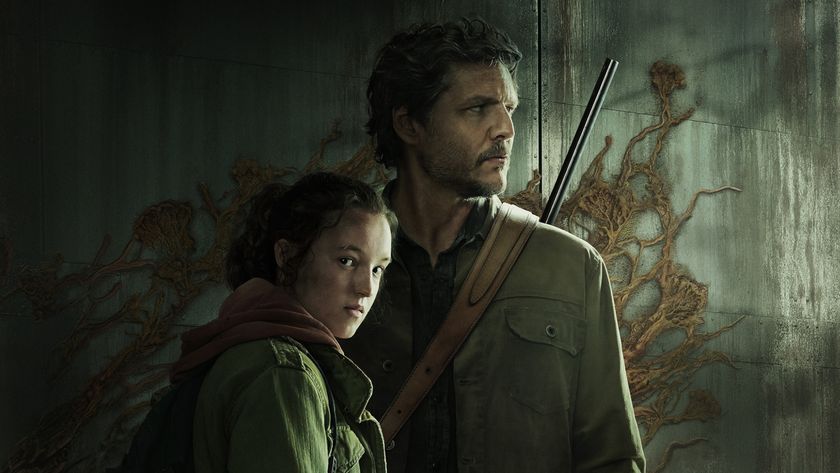
Neil Druckmann says he's letting HBO worry about "what to spoil or not" ahead of The Last of Us season 2 after Part 2's leaks: "[It] all blew up in my face"











